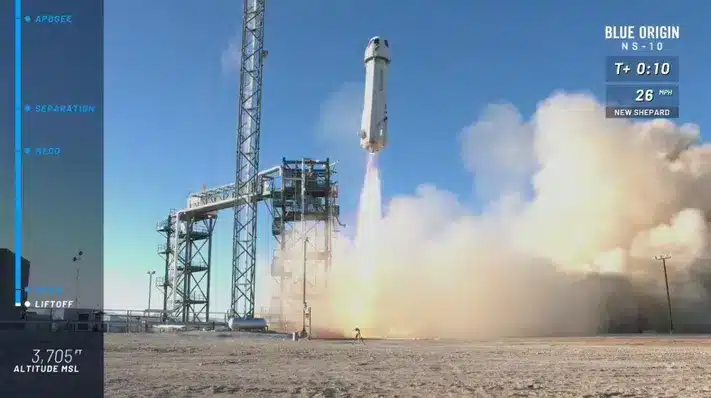Blue Origin Launches Successful 10th Human Spaceflight

On February 25, 2025, Blue Origin achieved a significant milestone by successfully launching its 10th human spaceflight from its West Texas facility. The mission, known as NS-30, transported six paying passengers who enjoyed a brief experience of weightlessness before safely returning to Earth. The launch occurred at 10:50 a.m. EST, following a minor delay, with the reusable New Shepard booster landing approximately seven minutes later, and the crew capsule descending three minutes after that, deploying all parachutes as planned.
Mission Details and Crew Members
The NS-30 mission marked the 30th flight of the New Shepard rocket system and the 10th occasion on which human passengers were onboard. The diverse crew included venture capitalist Lane Bess, Spanish television presenter Jesús Calleja, entrepreneur and physicist Elaine Chia Hyde, reproductive endocrinologist Richard Scott, and hedge fund partner Tushar Shah. The sixth passenger, who chose to remain anonymous, was identified only as R. Wilson. This mission continues to showcase Blue Origin’s commitment to making space travel accessible to civilians, furthering the company’s goal of expanding the horizons of commercial spaceflight.
Flight Experience and Safety Measures
New Shepard flights typically last between 10 to 12 minutes, providing passengers with a unique opportunity to experience microgravity and breathtaking views of Earth from the edge of space. Blue Origin confirmed that the capsule’s descent system operated flawlessly, with all three parachutes deploying as intended. This successful deployment is particularly noteworthy following a previous uncrewed mission where one parachute failed to open, raising safety concerns. The company has since reassured the public about its commitment to safety and reliability in its space tourism operations.
Ticket Pricing and Industry Competition
While Blue Origin has not disclosed the ticket prices for the New Shepard flights, its competitor, Virgin Galactic, currently charges $600,000 per seat for suborbital space tourism. The growing demand for commercial space travel has led to increased competition among private enterprises in the sector. Analysts suggest that as more companies enter the market, ticket prices may fluctuate, potentially making space tourism more accessible to a broader audience in the future.
Future Prospects for Space Tourism
Looking ahead, industry experts believe that Blue Origin plans to expand its space tourism program further. The successful NS-30 mission reinforces the potential of reusable spaceflight technology and the viability of commercial suborbital travel. Although no official announcements have been made regarding upcoming missions, additional crewed launches are expected in the coming months, signaling a promising future for space tourism enthusiasts.
Observer Voice is the one stop site for National, International news, Sports, Editor’s Choice, Art/culture contents, Quotes and much more. We also cover historical contents. Historical contents includes World History, Indian History, and what happened today. The website also covers Entertainment across the India and World.
Follow Us on Twitter, Instagram, Facebook, & LinkedIn

